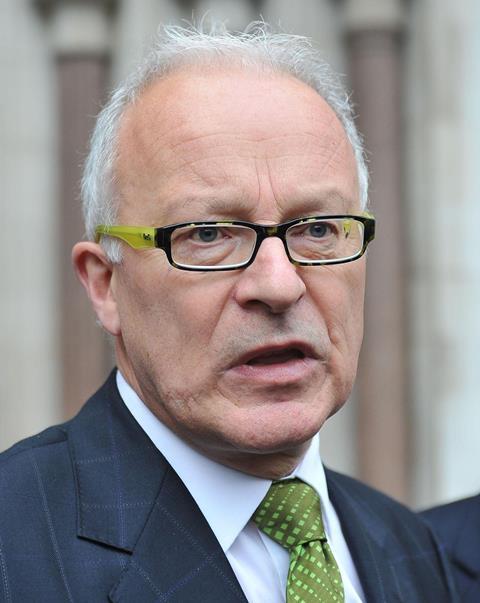Former human rights lawyer Phil Shiner pleaded guilty to fraud at Southwark Crown Court yesterday, a day before his trial was due to start under strict reporting restrictions.
Shiner, 67, was the principal solicitor of Brimingham-based firm Public Interest Lawyers. He led the pursuit of legal claims against British soldiers accused of ill treatment of Iraqi detainees after the 2003 Iraq war.
The fraud convictions relate to claims made after the alleged killings of Iraqi civilians by British army personnel at the so-called ‘Battle of Danny Boy’ in May 2004. One of those who died was Hamid Al-Sweady. His uncle, Khuder Al-Sweady, alleged the 19-year-old had been unlawfully killed by British soldiers.
Shiner made legal aid claims of around £200,000 in 2007 for his firm to represent clients, including Khuder Al-Sweady, in an application for judicial review. He failed to disclose to what was then the Legal Services Commission (now the Legal Aid Agency) that his firm had engaged in cold-calling clients and making unsolicited approaches to potential clients in Iraq.
He also failed to disclose that he was paying referral fees, which was not permitted as part of gaining a legal aid contract.

Shiner received around £3m in the value of the legal aid contract.
He was also convicted for providing a witness statement to the commission in support of his application which was again gained by an unsolicited approach.
As a result of the failure to disclose this information, Shiner was able to gain the legal aid contract to enable him to pursue the judicial review.
The Al-Sweady Inquiry, which cost £24m, investigated allegations that British troops had killed civilians in Iraq in the insurgency following the 2003 invasion. The inquiry cleared soldiers of the most serious allegations of unlawful killing but found there had been some mistreatment of detainees.
Following the inquiry, Shiner was struck off by the Solicitors Disciplinary Tribunal in 2017 for 22 charges of professional misconduct.
Andy Kelly, head of the NCA’s International Corruption Unit, described Shiner’s conviction as ‘a milestone in what has been a thorough and complex domestic and international investigation’.
He added: 'Shiner’s actions resulted in untold pressure and anxiety on members of the British Armed Forces, pursuing legal challenges funded through dishonest actions.'
Shiner first denied fraud in June 2022 at Westminster Magistrates' Court before his case was moved to Southwark. He will be sentenced in December.




























